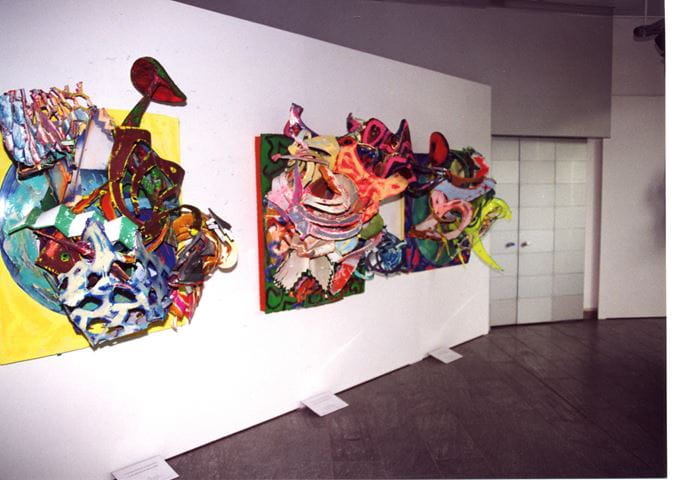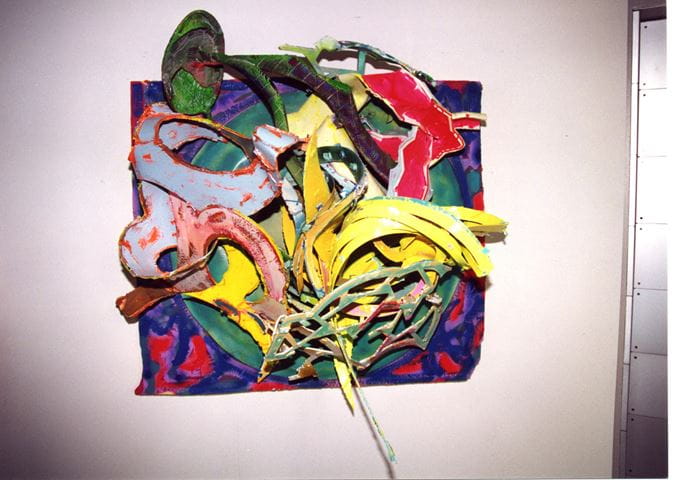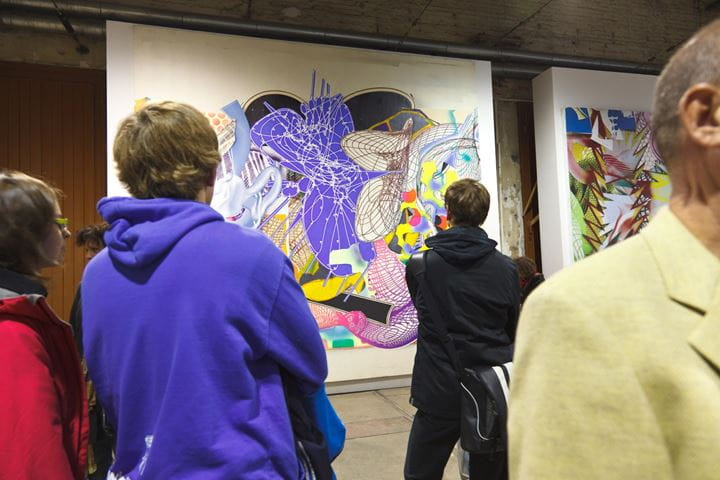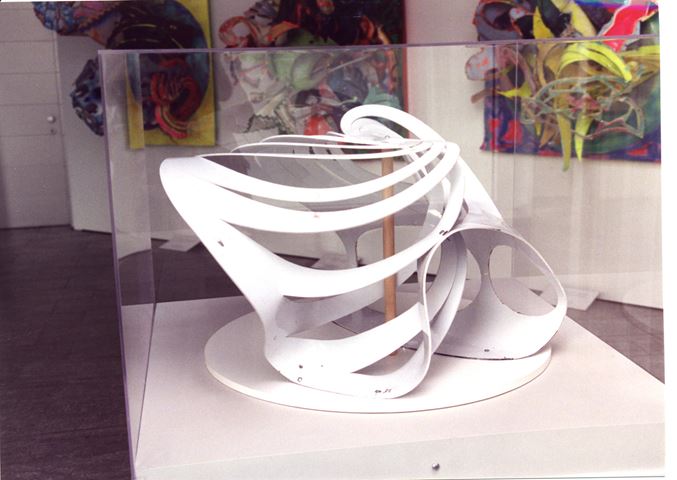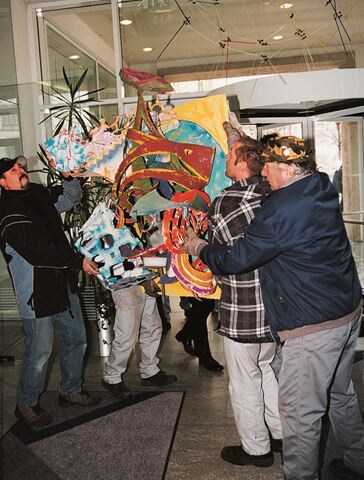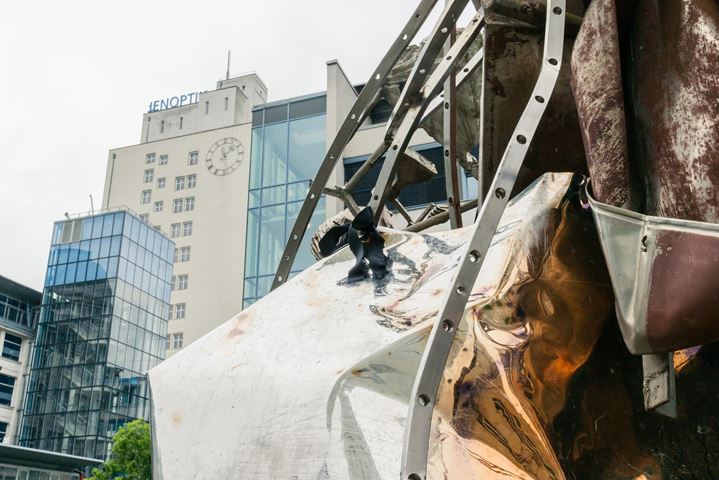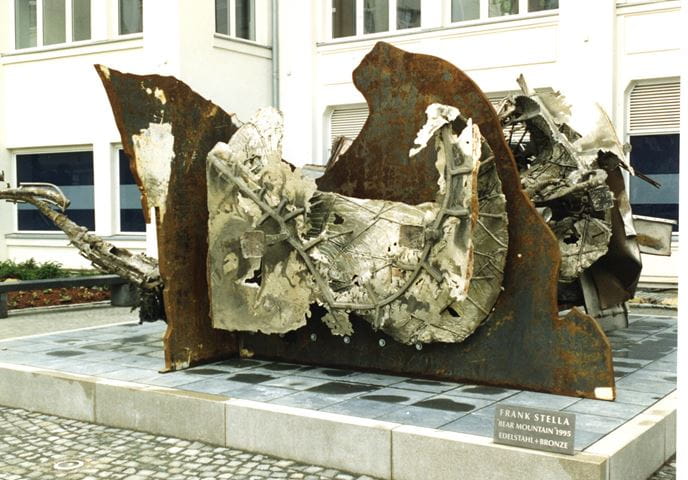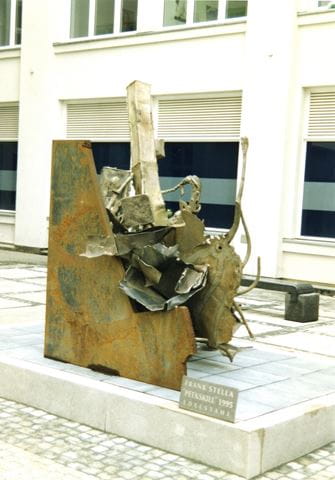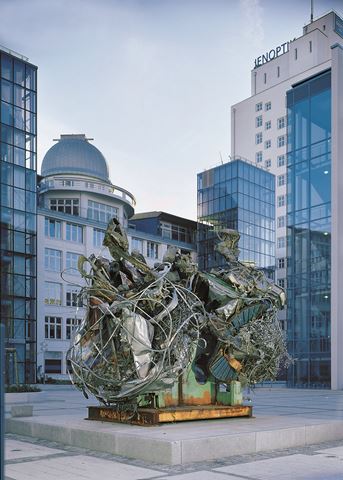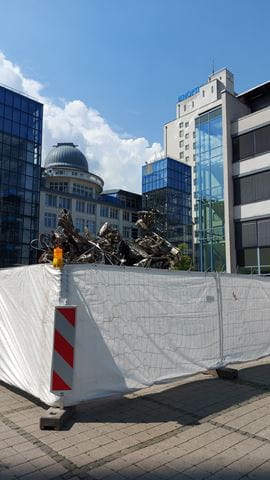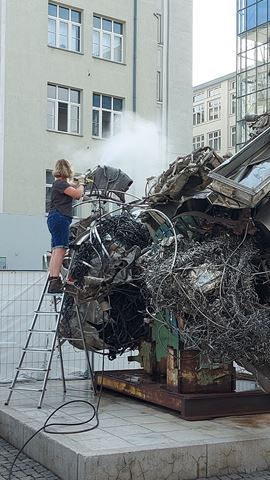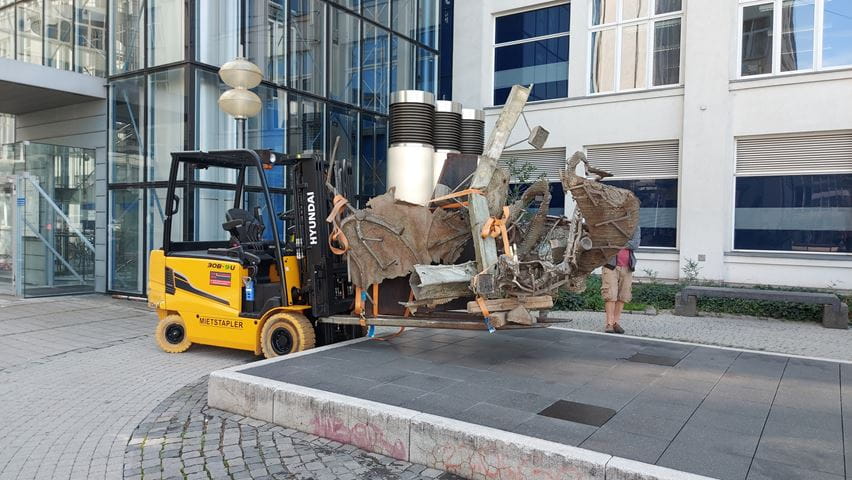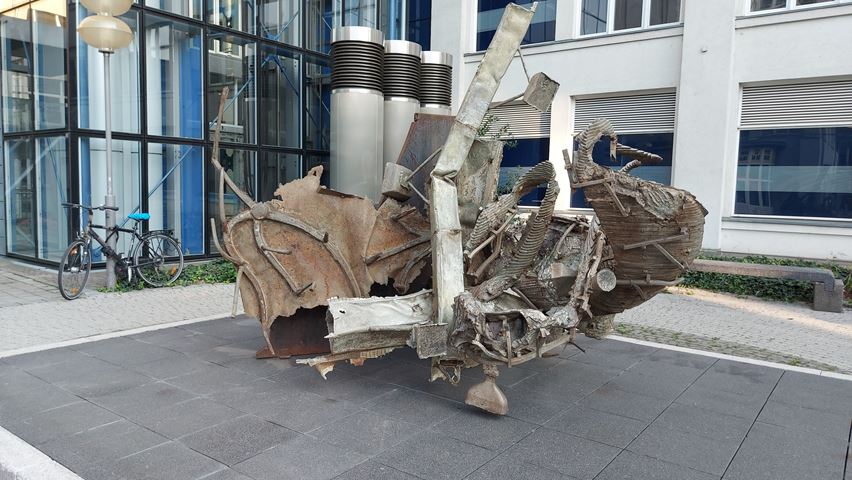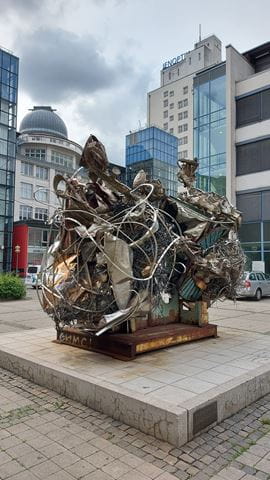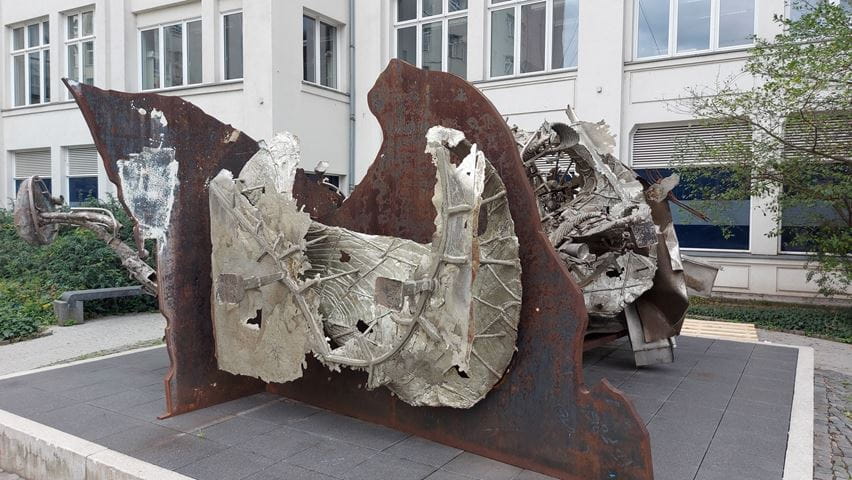Frank Stella in Jena
The U.S. American artist Frank Stella was a painter, sculptor and object artist who gave new impetus to the art scene of the 1960s with his experimental works. He became famous with his "Black Paintings" and the "Shaped Canvases" series. In Jena, one of his largest public sculpture parks can be seen on Ernst-Abbe-Platz in the city center.

Stella sculpture on the Ernst Abbe campus in Jena
His life
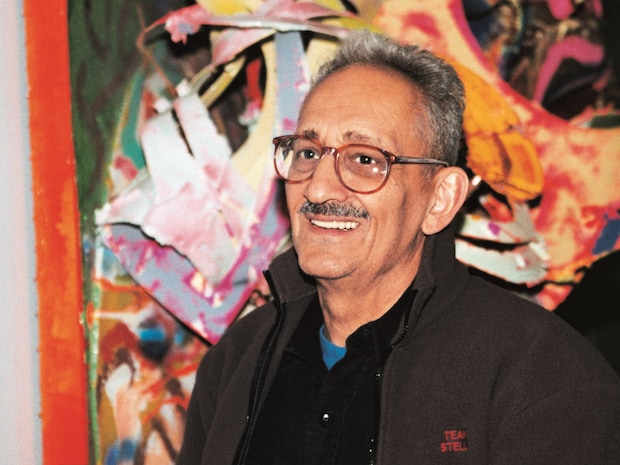
- 1936: born on May 12 in Malden, Massachusetts, north of Boston
- 1950-54: attended Phillips Academy High School, Andover, Massachusetts
- 1954-58: studied history at Princeton University, New Jersey; also took painting courses with William C. Seitz and Stephen Greene
- 1982: Honorary Mayor's Award for Art and Culture in New York, presented by Mayor Edward I. Koch
- 1983-84: was appointed Charles Eliot Norton Professor of Poetry at Harvard University, Cambridge, Massachusetts
- 1984: Honorary doctorate from Princeton University, New Jersey; start of the "Cones and Pillars Series"
- 1996: Doctor philosophiae honoris causa from the Friedrich Schiller University Jena
- 2009: was awarded the National Medal of Arts by US President Barack Obama
- 2020: Alexej von Jawlensky Prize from the the city of Wiesbaden, Germany
- May 2024: Frank Stella passed away in New York at the age of 87.
Frank Stella in Jena

Frank Stella in front of one of his sculptures on Ernst-Abbe-Platz
The honorary doctorate that Frank Stella received on February 6, 1996 was initiated by the Jena art historian Franz-Joachim Verspohl, then head of the Chair of Art History at the Friedrich Schiller University in Jena. He described Stella as one of the most renowned artists of the late 20th century.
In the same year, the New York artist showed hand drawings and a collage in his first Jena exhibition in the JENOPTIK AG gallery in the Ernst Abbe high-rise.
The transformation that had taken place around the former Zeiss factory had inspired Stella during a visit to artistically process the serious structural change of the 1990s. He offered to present five of the six sculptures in his "Hudson River Valley Series". The sculptures were not displayed in a museum setting, but are still accessible to all viewers as art in public space.
With great support from Lothar Späth, then CEO of Jenoptik and art patron, the sculpture park was inaugurated on the square in 1996 and is still one of the largest sculpture parks by Stella worldwide. Frank Stella donated the sculpture "Garrison" to Friedrich Schiller University in Jena, while "Newburgh", "Peekskill" and "Bear Mountain" are part of the JENOPTIK AG art collection.
Hudson River Valley Series

Installation of the sculptures 1996
The "Hudson River Valley Series" symbolizes the transformation process from old to new. The name of this series comes from the Hudson River Valley, which played an important role in the industrialization of the USA. Ernst-Abbe-Platz, the former Zeiss headquarters in the city center of Jena, is also characterized by transformation processes – from a purely industrial use to a public square in Jena today as a campus of Friedrich Schiller University and a service center with a medical center and shopping mall.
Colloquially, the sculptures are often disdained as "scrap metal", but it is worth taking a closer look at the sculptures, and not just for art connoisseurs. Frank Stella drew inspiration for these works of art from found forms, casting and assembling them and adding alloys. The spaces between the metal bodies are filled with additional rods, perforated metal foils and clusters of steel strips, thus creating insights into interior spaces with bulky internal forms. Existing material has thus been incorporated into new sculptures. Despite the fact that individual sculptural elements can be traced back to everyday objects, the quality of the form remains undefined in its specific form of arrangement.
According to Lothar Späth, the series stands for the myth of a powerful and lively city that is in a state of constant change.
This is not just scrap metal.
What cleaning the sculptures in Jena revealed.
In August 2022, the public sculptures of the Hudson River Valley Series were thoroughly cleaned for the first time. In the years since their installation, they have been covered in chewing gum, stickers and graffiti. Flowers and a manhole cover were also found in the sculptures.
The project was supported by Friedrich Schiller University Jena and JENOPTIK AG as well as numerous sponsors and the couple Prof. Martin S. Fischer and Dr. Barbara Happe. This enabled the sculptures to be professionally cleaned and restored for the first time in over 25 years. The restoration work took place as part of the International Summer Seminar for Young Academics under the direction of restorer Jens Linke.
During this time, the sculpture "Peekskill" was also moved to a different plinth so that it is now more visible from the campus.
Contact

